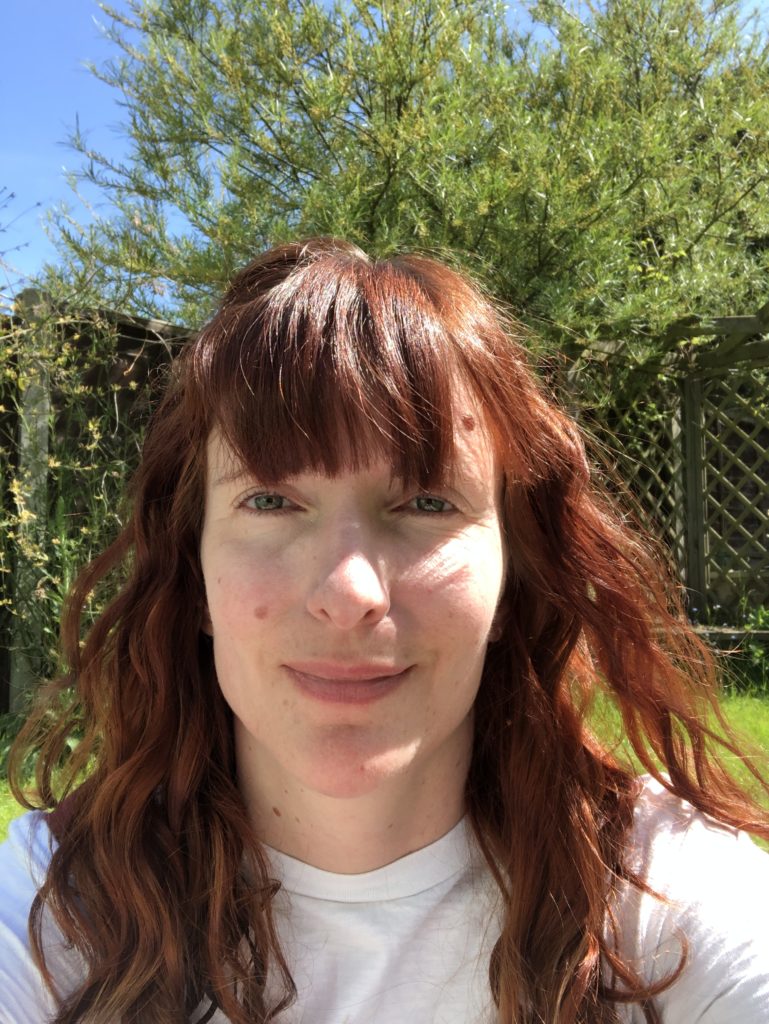The problem
Are written exams, as the sole means of assessing learning, the best way for young people to demonstrate the knowledge, skills and abilities they have gained during their education?
Rethinking Assessment don’t think so. They believe that the UK’s current assessment system isn’t working and that it’s time for change that recognises the full breadth of every young person’s strengths and achievements.
In the UK, exams dictate both what is taught and how it is taught, with headteachers saying they feel high stakes exams distort priorities and stop them from providing a well-rounded education for pupils.
Competition for grades is not equitable and a degree of failure is built into the system. The ‘forgotten third’ refers to the proportion of students who are destined to fail their GCSEs in maths and English, in order for two thirds to pass and for the system to work.
Many young people find the way the exam system works increasingly stressful and not a true reflection of what they can do or are good at. Furthermore current assessments are not giving universities, colleges or employers the kind of information they want when trying to ascertain a young person’s capabilities.
The solution
Over the past two years, Rethinking Assessment has been learning from, and building on, best practices around the world to design an approach to assessment that helps every young person to thrive. Working on practical ideas and approaches to be piloted in schools, they have identified a powerful way forward: Learner Profiles. Drawing on work underway in the USA and Australia in particular.
Rethinking Assessment’s vision is for every young person to put together a Learner Profile during their 14 year learning journey, including evidence of what they can do, what they have achieved, the story of their learning and a portfolio of their best work.
Young people will start creating their Learner Profile at school, topping it up as they go to demonstrate a range of achievements and show the breadth of their knowledge and capabilities. The profile will give universities, training providers and employers real information about the young person’s competencies in crucial skills and provide a rounded picture that goes beyond a set of exam numbers and letters.
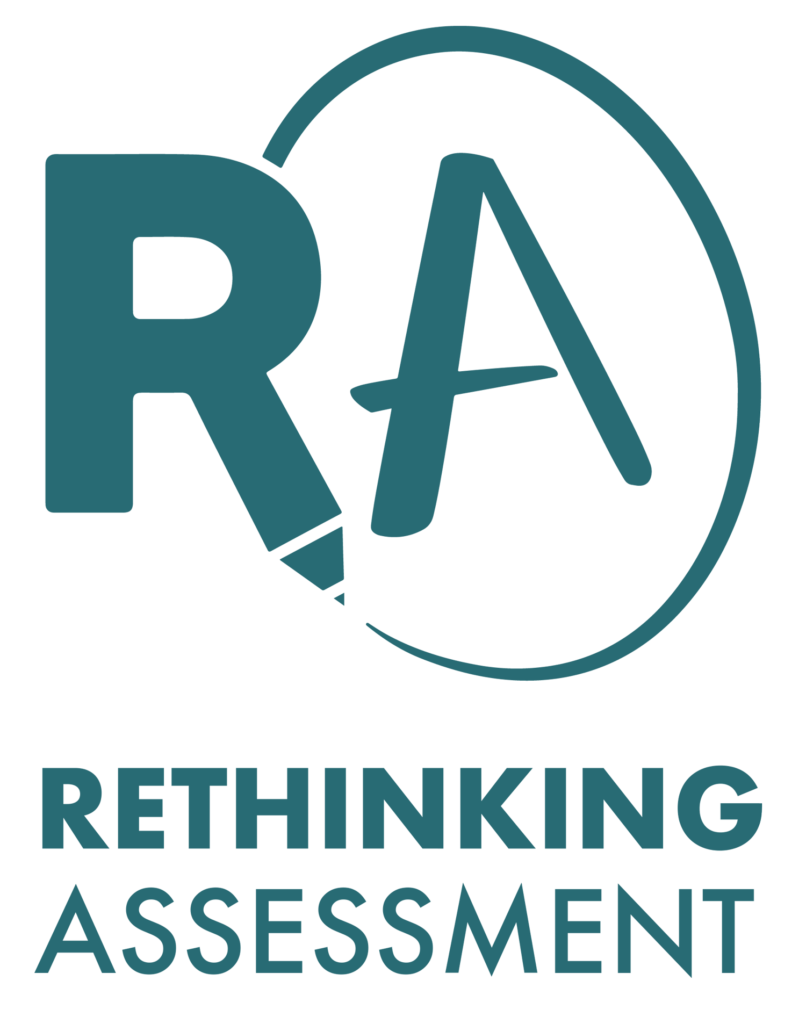
“We want young people to leave school with a rounded digital Learner Profile that shows all the different things that they can do” – Peter Hyman, Co-Founder
Work in action
In June 2022, Rethinking Assessment launched a prototype of their Learner Profile.
The Profile’s framework recognises and evidences young people’s breadth of strengths across knowledge, skills and dispositions. It has four main components:
- The building blocks of literacy, numeracy, oracy and digital skills.
- Courses (single subjects, applied learning interdisciplinary).
- An extended project qualification or equivalent project.
- A Dispositions Wheel (creative thinking, communication, collaboration.
The next steps are to put the Learner Profile concept into practice, testing and piloting it with all the main stakeholders including: education providers, employers, universities, training providers, and crucially learners themselves.
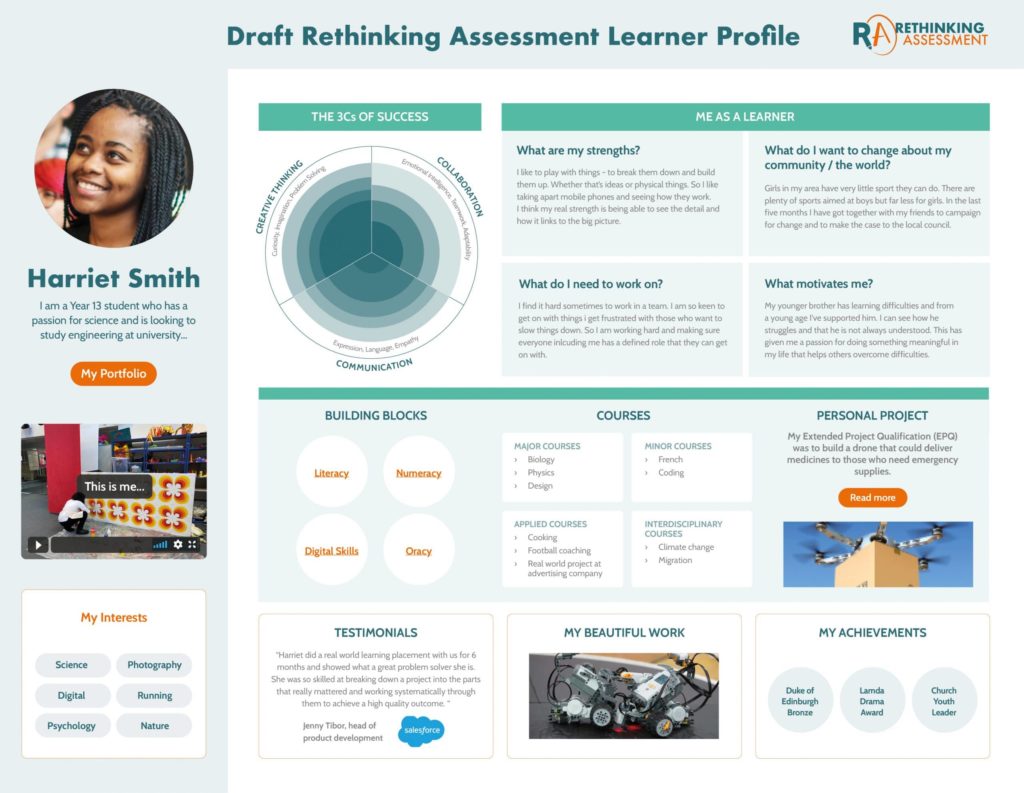
The Big Changers
Peter Hyman
A long-standing part of the Big Change network, Peter co-founded Rethinking Assessment in 2020. He also co-founded our Project Partner, Voice 21, and is co-director of our Project Partner Big Education; a multi academy trust and social enterprise that is trying to forge a more expansive education based around the education of the whole child – head, heart and hand.
In addition, Peter is co-founder and the first headteacher of School 21, a pioneering school for 4-18 year olds that opened in Stratford in 2012. Peter was previously a strategist and speechwriter for British Prime Minister Tony Blair before leaving to work in teaching and education.
On the need to rethink assessment Peter says:
“For me [education] is about developing the tools – the knowledge, skills, ingenuity, empathy – to become a human being with the capacity to leave the world in a better place than it was. Our assessment and exams system does not help us to achieve this – it stifles the creativity of young people rather than liberating it. It causes unnecessary pressure rather than supporting the transition to adulthood. When things are not fit for purpose, it is our duty to change them.”
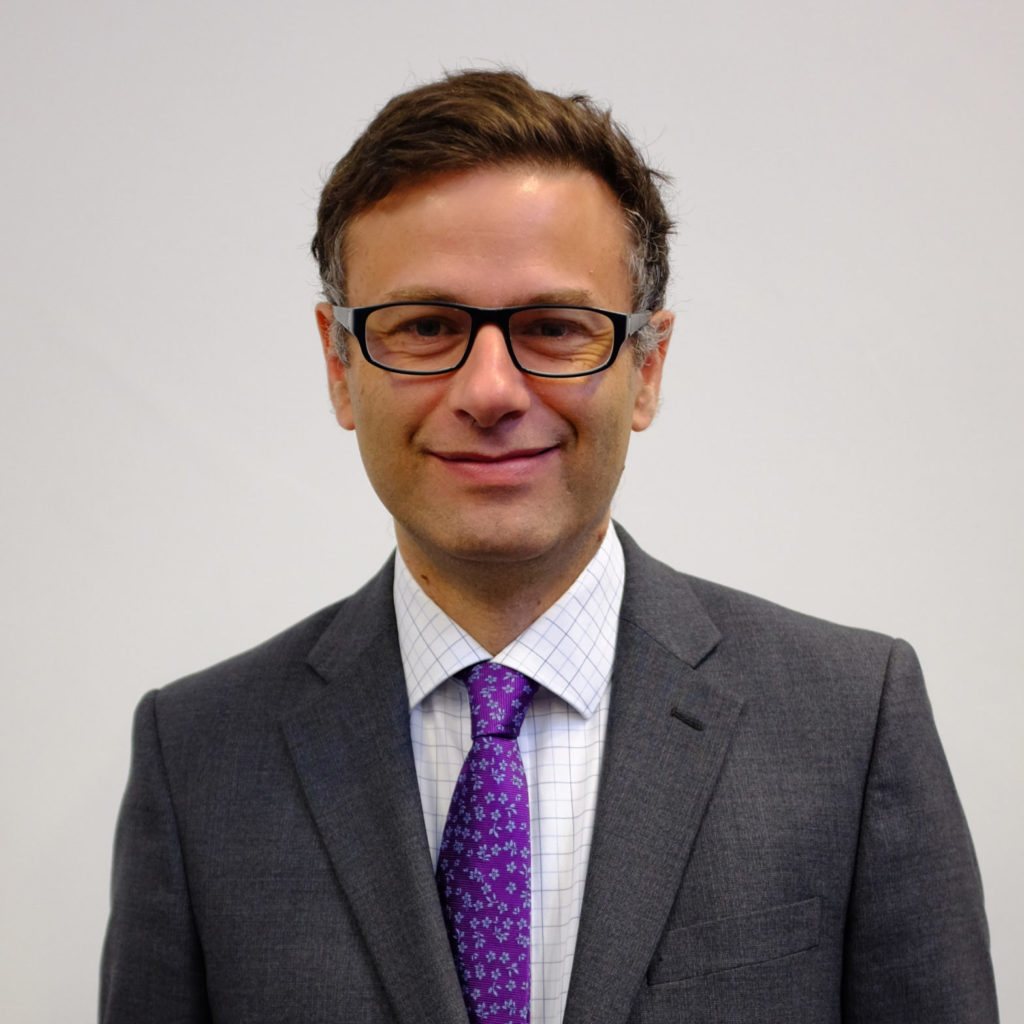
Professor Bill Lucas
Co-founder Bill is also Director of the Centre for Real-World Learning and Professor of Learning at the University of Winchester. Former school leader and CEO of two national educational charities, Bill is a researcher, writer and educational thought-leader. His model of creativity is now in use in more than 20 countries across the world demonstrating that creative thinking can be developed and assessed in students. Bill is co-chair of the new PISA 2021 Test of Creative Thinking and co-author of the recent Durham Commission Report on Creativity and Education. Also an author, Bill’s latest book is Zest for Learning: Developing curious learners who relish real-world challenges.
On the need to rethink assessment Bill says:
“As a young teacher I helped Sir Tim Brighouse develop the Oxford Certificate of Educational Achievement, an early prototype designed to value the full range of young people’s strengths, and ever since then have been trying to describe how students are developing rather than where they have apparently failed the tests the system sets them.”
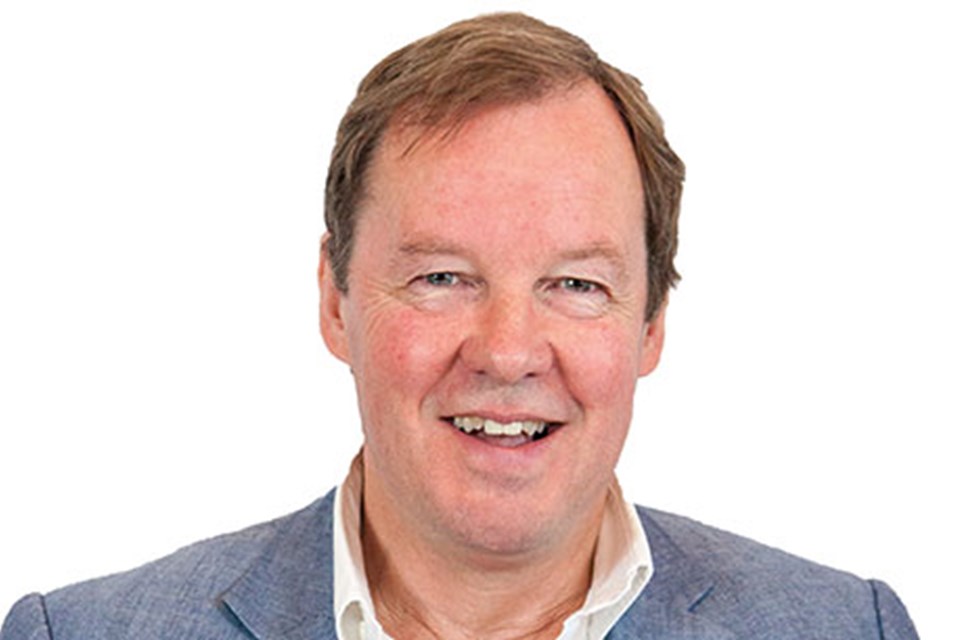
Rosie Clayton
Project Director Rosie is an education specialist working on leading projects and initiatives spanning education, skills, technology and lifelong learning. Her work bridges policy and practice, systems thinking and social change, and she has wide ranging experience building new programmes in education, working from community level to government level to drive change. She started out working for the Studio Schools Trust, setting up new schools across England which bridge education and industry, and for a digital skills start-up which created pop up design labs in schools. More recently, Rosie was an Associate Director at the Royal Society of Arts leading the Cities of Learning programme, and has worked with Ashoka, the Global Education Leaders Partnership and the World Innovation Summit for Education developing the field of learning ecosystems globally.
On the need to rethink assessment Rosie says:
Redefining what success looks like in school, and what we value as a society, is a passion of mine driven by personal experience. Having seen how things can be done differently, and visited places where young people leave education with their self esteem enhanced and a sense of purpose and agency, it begs the question why every young person can’t have the experiences and recognition that enables this for them. Our assessment system, which labels so many as ‘not able’, ‘low achieving’ or as failures, is a fundamental injustice. As Andreas Schleicher says: “We must distribute the core asset of our times, human potential, far more equitably. In the past it was sufficient to sort students because our economies could rely on a few highly educated individuals. Today, we need all learners to participate and contribute to the world.”
